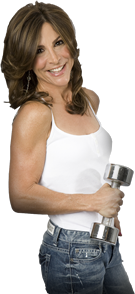
READ STRESS SURVIVOR’S STORIES FROM THE BOOK FOR FREE

SUBSCRIBE TO NEWSLETTER
Get Email Updates
“Cheese is Ice Cream Without the Sugar”
“Cheese is Ice Cream without the Sugar”
My graduate school professor, Dr Penelope Easton said and I never forgot her words.
Actually, this comment made sense to me. Not because of any heavy science, but culturally as a European descendent, I understood and grew up appreciating cheese as a delicacy. In fact, it is typically served abroad or stateside at European restaurants as or in lieu of dessert. Whether watching the Food Channel and or stores like Whole Foods place, cheese on a culinary pedestal. Heck, even when I was invited to speak at a conference in Wisconsin, I received a gift of “cheese curd” (the chewy, squeaky parts of the soured milk) for my presentation.
Why is cheese treated like dessert royalty?
According to the American Cheese Society, “Cheese makers must thoroughly master and understand the highly technical and scientific processes involved, but they must also have the touch and sensitivity of an artist.” Additionally, “while there are thousands of different cheese types, there are only 18 distinct types of natural cheeses which as a product of different types of milk, regional environmental conditions, accidents and gradual improvements by trial and error due to the natural variation inherent in the milk and the imperfect controllability of the microorganisms present in the milk.”
Nutritionally, cheese is often as rich in fat as ice cream unless you get the low or nonfat variety. An artery clogger and weight gainer, I’ve seen my clients young and old, athletic or not, develop and overcome high blood cholesterol, triglycerides and LDL (low density lipoprotein) elevations and overweight issues with or without it. In fact, I personally experienced this after the first time visited Switzerland two decades ago. I couldn’t understand why I had gained 5 pounds on my vacation since I eat plant based, no excesses of anything, not even Mozart Balls in Austria or pastries in France. It dawned me that it came down to one indulgence—cheese!
Take a bite outside the fattiness of the cheese box and there’s whole lot of nutritional goodness!
For starters, cheese is a simple food, just 4 basic ingredients—milk, salt, culture (good bacteria) and enzymes. It is an excellent source of protein, calcium & phosphorus, good for the bones and strong bodies. If you’re worried about the fat, than low fat varieties such as Bel Brand’s Mini BabyBel, Laughing Cow Light Wedges, Kraft non or low fat shredded or Athenos non/low fat feta are a few ways to spread the love. If you’re like me, a lacto ovo vegetarian or vegan there are several nondairy varieties including my favorites—Lisanatti Foods Almond Cheese, Veg Cuisine Soy Bleu Cheese, or SoyaKaas Cheese just to name a few. These brands offer not only dairy free and vegan varieties but serve only ¼ to 1/3 (25-40 calories/oz) than full fat brands.
For those stressed with lactose intolerance, the inability to breakdown the milk sugar, experience gas, bloating, abdominal pain, nausea and diarrhea cheese may be your next best high calcium option. If you can tolerate a small amount of lactose, compared with other dairy cheese has only about 1-2 grams, much less than the 10 grams a day recommended unless you have bad symptoms, then complete elimination of lactose is advised.
For me, cheese brings back great memories. Hats off to delicious cheese, fun European vacations and memorable dates prior to marriage at Wine & Cheese Jazz Clubs. Yes maybe cheese is like ice cream without the sugar, but worth every last bite.
For more information about cheese:
Cheese making Process
http://www.cheesesociety.org/domain-two-cheese-making-processes/
http://www.rickandlynne.com/cheese/process/s:
Nutritional benefits: http://www.nationaldairycouncil.org/SiteCollectionDocuments/education_materials/cheese/Health%20Professional%20Cheese%20Nutrition%20Brochure%20Final.pdf
Disclaimer: The information that you receive via this website/ blog is not intended to replace medical advice or be a substitute for medical or other professional assistance with your diet or health. Before embarking on any lifestyle change program, consult your personal physician. If you are taking a prescription medication, you should also consult your physician before making changes in your diet, exercise, eating behaviors or lifestyle habits.
Please also keep in mind, if your stress circumstances exceed your emotional resources; the burden is far beyond your abilities to cope with the situation and/or if the stressor is a threat to you or your loved ones then please seek professional help by calling 911, the legal justice system or a licensed professional counselor or medical doctor to help you to deal & cope with the situation.

CONNECT